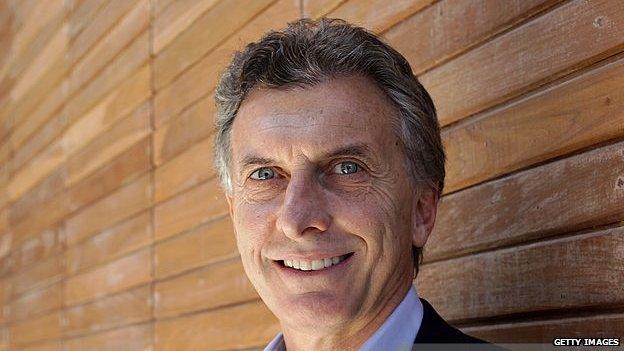Argentina profile - Leaders
- Published

Mauricio Macri
President: Mauricio Macri
Buenos Aires Mayor Mauricio Macri defied expectations by winning the 2015 presidential election run-off, beating Peronist candidate Daniel Scioli to become the country's first unambiguously conservative president to win a free and fair election since 1916.
Born into a wealthy business family, Mr Macri worked for his father and in banking before going into politics - a step he partly attributes to his being kidnapped and held ransom by rogue police officers in 1991.
He entered Buenos Aires city politics in 2003, where his profile was helped by his presidency of Boca Juniors, one of the country's most popular and successful football clubs at the time.
He secured a place on the council in 2005 as part of the Republican Proposal alliance, and was elected mayor two years later.
He soon emerged as the leader of a reunited conservative opposition to Peronist presidents Nestor Kirchner and Cristina Fernandez, exploiting the failure of Ms Fernandez's administration to manage the consequences of the 2008 global economic crisis.
As president, Mr Macri has promised a clean break with almost all of his predecessor's state-focused policies, in particular pledging to lift currency exchange controls and improve conditions for business.
Capitalising on disillusion among poorer voters hit hard by the recession, he has also promised major infrastructure projects and a continuation of President Fernandez's popular welfare programmes.
He aims to reorient Argentina's South American regional policy away from populist governments like Venezuela towards the Pacific Alliance trading bloc that includes Chile, Peru, Colombia and Mexico, and aims for better relations with the United States and Britain.
Despite having built up a strong nationwide support base, Mr Macri still faces a broadly pro-Peronist majority in both houses of Congress - where elections are not due until 2017.